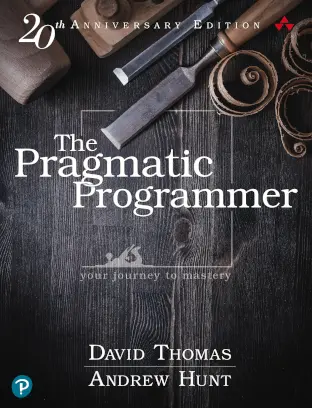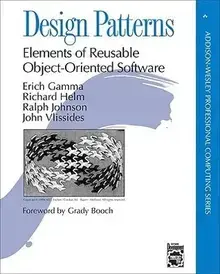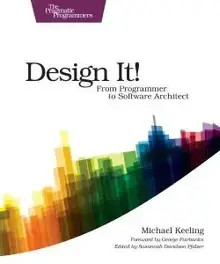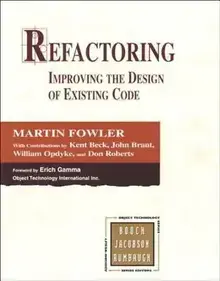Readability
Readability describes how easily other people can follow a piece of code or documentation. High readability reduces cognitive load, shortens reviews, and lowers the risk of bugs when changes are made.
Below is an overview of content that matches the tag "readability".
Note that this list is not exhaustive, as it is automatically aggregated based on manually assigned categorizations.
If you notice a missing element, or think some of the items are wrongfully categorized, please create a bug/improvement ticket on our github issue tracker.
Patterns tagged with "Readability"
problem:Developers struggle to maintain code consistency, negatively affecting code maintainability and reliability.
description:Maintaining a consistent coding style within a team, using automation and documentation to enforce it.
Books tagged with "Readability"
The Pragmatic Programmer, 20th Anniversary Edition
Your Journey to Mastery
Thomas, D.; Hunt, A. (2019) The Pragmatic Programmer, 20th Anniversary Edition. Addison-Wesley Professional. isbn: 978-0135957059.
Widely regarded as one of the definitive books on software development, The Pragmatic Programmer
by Andy Hunt and Dave Thomas distills decades of pragmatic software craftsmanship.
Presented in an approachable, conversational style, this revised edition remains essential reading for developers at any stage.
The authors span coding techniques, architecture, project management, and career habits, weaving actionable advice with memorable anecdotes.
Their guidance helps developers deliver elegant, maintainable code while staying adaptable—and keeping their sanity intact.
Design Patterns
Elements of Reusable Object-Oriented Software
Gamma, E.; Helm, R.; Johnson, R.; Vlissides, J. (1994) Design Patterns. Addison-Wesley Professional. isbn: 978-0201633610.
Often called the Gang of Four book, Design Patterns catalogues reusable solutions for object-oriented systems. Each pattern outlines intent, structure, and trade-offs so teams can spot when the guidance helps and when it adds unnecessary complexity. Despite its age, the catalogue remains a foundational reference for developers who need shared language around extensibility and maintainability.
Design It
From Programmer to Software Architect
Keeling, M. (2017) Design It. The Pragmatic Bookshelf. isbn: 1680502093.
Design It follows a fictional project to illustrate how software architects balance stakeholder goals, constraints, and technical options. Michael Keeling mixes facilitation techniques, documentation strategies, and decision records so architects can make their thinking transparent. It serves both aspiring architects and experienced leads who want a modern, collaborative toolkit.
Refactoring
Improving the Design of Existing Code
Fowler, M.; Beck, K.; Brant, J.; Opdyke, W.; Roberts, D. (2012) Refactoring. Addison-Wesley Professional. isbn: 978-0133065268.
Refactoring teaches how to improve existing code safely by taking small, behaviour-preserving steps. Martin Fowler and collaborators catalogue common code smells, explain when to refactor, and demonstrate each transformation with tests. The examples use Java (and newer editions TypeScript), but the principles apply across languages whenever teams need cleaner design.
Clean Code
A Handbook of Agile Software Craftsmanship
Martin, R. C. (2008) Clean Code. Pearson. isbn: 978-0132350884.
Clean Code advocates for readable, maintainable software through small, disciplined practices. Robert C. Martin demonstrates naming, function extraction, and test-first habits that keep code easy to change while cautioning against dogma. Treat it as a set of guiding principles to inspire teams, adapting the advice to modern tooling and context.
Raymond, E.S. (2003) The Art of Unix Programming. Addison-Wesley. isbn: 978-0131429017.
The Art of Unix Programming captures the Unix philosophy through essays on simplicity, modularity, and composability. Eric S. Raymond profiles successful tools and communities to show how small programs that do one thing well combine into powerful systems. The collection remains a valuable reference for developers who want to design software with clear boundaries and reusable interfaces.






